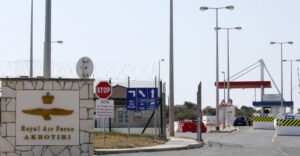The main Serbian hospital treating patients infected with coronavirus looks like an abandoned building, but it isn’t.
With its rundown facade, peeling walls and rooms crammed with metal beds, the downtown Belgrade clinic for infectious diseases has for decades been a symbol of Serbia’s depleted health system that now has to cope with a major virus outbreak.
“If coronavirus doesn’t kill you, that hospital surely will,” said Bane Spasic, a middle-aged man who recently visited the place for a minor infection.
Although the COVID-19 pandemic hasn’t hit Eastern and Central Europe with such a force compared to Italy, Spain and France, health officials throughout the region are sounding alarm about the lack of medical staff, facilities, equipment and enough hospital beds to handle several virus outbreaks simultaneously.
The COVID-19 illness causes mild or moderate symptoms in most of those infected, but severe symptoms are more likely in the elderly or people with existing health problems. The vast majority of those infected recover.
Read Also:
North Macedonia postpones early national elections amid coronavirus outbreak
The countries in the region have taken a range of restrictive steps, from cutting off travel links to closing down schools and universities. But there are fears that the relatively low number of tests being carried out doesn’t reflect the true scale of the outbreak.
The massive exodus of doctors and nurses to the West, mainly Germany, appears to be a major hurdle in the fight against the outbreak. Now, the medical staff are being called to come out of retirement, graduate medical students are asked to volunteer and officials are promising special bonuses to the overloaded staff.
The government in Slovenia has suspended specialist studies for new doctors and interns so they can join the effort to combat the epidemics. Graduated doctors who still don’t have their licenses will be appointed wherever their help may be needed.
Read more: AP
Ask me anything
Explore related questions





